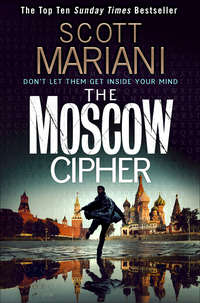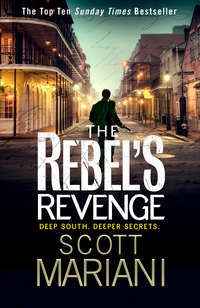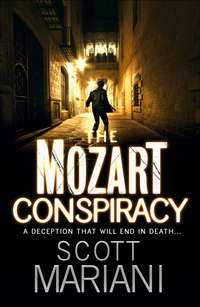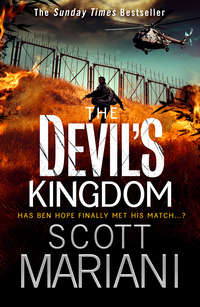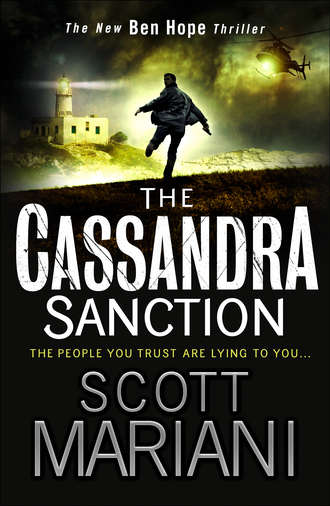
Полная версия
The Cassandra Sanction: The most controversial action adventure thriller you’ll read this year!
The purpose-built railway stretched many hundreds of miles northwards through China and deep into the mountains of Tibet, the line itself mostly carved out by chain-gangs of convicts. Threat of execution made them the most effective workers, and by definition they were the cheapest. However many dropped dead of exhaustion, were crushed by heavy machinery or shot while trying to escape, fresh reserves were always readily available.
The cargo consisted of 892 drums of high-level nuclear waste. Each drum contained 55 US gallons or 208 litres, and measured 35 inches in height by 24 inches in diameter. Their yellow paint was scored and scuffed from rubbing together in transit, and many of them were already showing signs of corrosion after their long sea voyage. They’d eventually rust through, but by then it wouldn’t matter, at least not to Grant. The occasional drum might rupture as it degraded, and if it wasn’t buried deeply enough the small explosion could sometimes break the surface, spewing radioactive white foam that resembled whipped cream and would remain lethally radioactive for hundreds of thousands of years.
Grant didn’t care much about that, either. They had unlimited space out here. Every time they excavated a new site, it was far enough away from the last one to avoid contaminating too many of the convicts. They were routinely checked for radiation after handling the merchandise. If one of them made the Geigers crackle, the soldiers would just put a bullet in the bugger and toss his body in the pit. It was the cheapest solution to the problem. These communists understood free enterprise better than most nations.
The nuclear waste dumping facilities came courtesy of the Ninth Academy, the most secretive organisation within the whole of China’s extensive nuclear programme. It was largely thanks to the Ninth Academy that, in the years since its annexation to the People’s Republic in 1951, Tibet had steadily developed into China’s Nuclear Central. First they’d ravaged the unspoilt wilds for their plentiful uranium resources, then they’d used the country for conducting nuclear weapons tests, and now it was used as a convenient dumping ground for nuclear waste – not just from the vast territory of China itself, but from all over the planet.
Hey, it all had to go somewhere. Grant had wide experience of offloading nuclear waste in a number of countries. Simply tipping it into the sea was a cost-effective no-brainer, common dumping grounds being the coasts of Italy and Africa. If you couldn’t get away with that, burying it was your next best option, though transportation became more of a problem in the kinds of wilderness areas essential to escaping the watchful eye of the environmentalists. Kester Holdings had established nice little niches in Somalia, Kenya and Zaire, but China (despite being so much damned further to travel) was his favourite. The Chinese were excellent to deal with, even if the presence of so many armed troops made Grant edgy at times. While stringently denying any such practice, in reality the Chinese government were more than happy to accept deals from western corporations with large quantities of so-called ‘black list’ materials to dispose of, as quietly as possible, and equally large quantities of cash to offer in return.
It worked out beautifully for all concerned. The environmentalist NGOs found it difficult to penetrate the country, which meant the little creeps couldn’t spy on what he was doing, and he could operate freely. A few years back, a group of Green campaigners from Lhasa had tried to infiltrate the operation but the silly bastards had been caught, imprisoned, tortured and disposed of before they could blow the whistle to the world media.
The Chinese authorities were also highly accommodating when it came to their total non-investigation of the sharp increase in disease rates and birth defects affecting wide areas around the dumping zones. Reports of two-headed babies being born in Tibetan villages, you could generally ignore in the safe knowledge that nobody knew, nobody cared and nothing would ever come of it.
Anyway – as Grant had been known to joke in private to his colleagues – two heads are better than one.
Grant peeled back the sleeve of the Zegna and looked at his Breguet Classique. The watch had cost almost as much as the suit. He nodded to himself. The last of the drums would soon be in the ground and the giant hole filled up with a thousand tons of earth and stone. He was getting cold and bored out here, and decided he didn’t need to hang around any longer.
But he’d be back, soon enough. There was always another cargo to deliver, another operation to oversee. Another gigantic pile of money to make.
Free enterprise. Where would we be without it?
He started walking back towards the helicopter.
Chapter Seven
Raul Fuentes emptied a third sachet of sugar into the paper cup of coffee, stirred it in with the little plastic stick, took a sip and screwed up his face, muttering, ‘Sabe a mierda.’ He turned to Ben. ‘How can you drink it?’
Ben shrugged and went on gazing out of the plane window. If the flight was taking the most direct route, then by his reckoning they were somewhere over Bordeaux. Their destination was Hamburg, Germany’s most northerly airport and the nearest to Rügen Island. Before heading all the way south to Munich, Ben first wanted to pay a visit to the cliffs where Catalina Fuentes was said to have killed herself.
Raul poured in a fourth sugar, sipped again and pulled another pained expression.
‘Give it to me,’ Ben said, grabbed the cup from his hand and swallowed it down in four gulps. It was bad, but once you had tasted army coffee you could drink pretty much anything. As far as Ben was concerned, adaptability was a virtue. Besides, he was tired and needed the caffeine. His night on Raul’s couch had been a sleepless one, his mind too full of thoughts and refusing to switch off. If Raul would only shut up a while, he might get some rest before they touched down at Hamburg. But Raul had barely stopped talking since they’d left his Volkswagen in the long-stay parking and hit the departure lounge at the Aeropuerto de Málaga. Ben knew the guy was nervous and upset, and didn’t have the heart to tell him to put a sock in it. He turned away from the window and closed his eyes, hoping maybe that would give the Spaniard a hint.
‘Your sister,’ Raul said. ‘Ruth, is that her name?’
Ben opened his eyes. ‘What about her?’
‘Where is she now?’
Ben looked at him. ‘Now?’
‘What happened to her? Where does she live? Do you see her? Are you close?’ It seemed as if Raul had been plucking up the courage to ask for so long that his questions had all come tumbling out at once. Ben could sense he really needed to know the answers. If one lost sister could be recovered, then maybe so could another. That was the only thought that could offer Raul any solace at this moment.
Except that Ruth Hope hadn’t driven her car off a sheer drop into the sea and given every indication of having taken her own life.
‘Ruth lives in Switzerland now,’ Ben said. ‘She has a business there. I haven’t seen her in a while, but we speak on the phone.’ Ben didn’t mention that his sister was no longer talking to him.
‘You never told me how you found her.’
‘Her kidnappers were Arab white slavers,’ Ben said. ‘Middlemen. Once they had her, they transported her into the desert, probably to meet with one of their contacts. Money would have changed hands, she’d have been put on a truck and taken to any of a million places in North Africa or the Middle East, and her life would have been as good as finished. But the meeting never happened. A fight broke out between the kidnappers, she escaped, and then a sandstorm separated her from them. She was taken in by a Bedouin family and lived with them for a while. Then some time later, she was adopted by a rich Swiss couple called the Steiners, who were touring the desert when they happened upon this little blond-haired, blue-eyed European girl living with the Bedu.’
‘I don’t get it. They never returned her to her proper family?’
‘Steiner told her that her real family were dead,’ Ben said. ‘His story was that we were all killed in a plane crash.’
Raul suddenly looked unsettled. You obviously weren’t supposed to talk about plane crashes when you were flying in one. Ben sometimes forgot that violent sudden death was a taboo subject for normal folks.
‘But why would he pretend that?’ Raul asked.
‘Because he wanted to keep her,’ Ben said. ‘The Steiners had lost a daughter the same age, in a riding accident. He believed that Ruth was a miracle sent to them, and he wasn’t going to lose his little girl again. He used his wealth and influence to make her believe his lies for years. I’d left the army and was working in VIP protection when I happened to get involved with a private security team assigned to guard Steiner. That’s how I eventually found her again.’
‘Wow. What are the odds?’
‘I know,’ Ben said. ‘But that’s the way it happened.’
‘Never lose faith,’ Raul murmured, more to himself than to Ben. Shaking his head in amazement at the story, he settled back in his seat and fell silent for the first time since they’d left Málaga that morning. Ben went back to gazing out of the window, thinking about those times and wondering when he’d ever see Ruth again, and whether you could lose a person twice.
Two hours later, as Ben’s Omega Seamaster was reading exactly midday, the aircraft touched down at Hamburg Flughafen. So many armed cops were standing on guard about the place, in tactical armour with machine carbines cradled across their chests, that it looked as if a state of martial law had been declared. Maybe war had broken out in northern Europe while Ben had been wandering about Andalucía.
Ben had only his battered old green bag for luggage, and Raul had packed a single small holdall. With their bags over their shoulders they stepped out into the drizzle in search of a car rental place. ‘Damn, it’s cold here,’ Raul said, scowling.
‘First you won’t drink the coffee, now you can’t stand the cold,’ Ben said. ‘Remind me never to take you on a camping trip.’ Even he felt the bitter chill in the air after the climate of southern Spain, but he was getting used to it with every passing second. Adaptability.
When they found the Europcar offices, Ben stopped Raul outside the door and said, ‘Better keep the paperwork in your name only, okay?’ When Raul asked why, Ben replied, ‘I’m not their favourite person.’
‘Are you blacklisted or something?’
‘Not quite. But let’s keep this simple, and my name out of it.’
‘Sure, I understand,’ Raul said, though he didn’t. Not yet.
‘How about that one?’ Ben said as they perused the line of cars a few minutes later. He was pointing at a Golf GTI. Something quick and sporty that would get them where they needed to go without wasting time.
Raul frowned. He had insisted on paying for everything, so it was his decision. ‘I don’t like that one.’
‘Too expensive?’
‘And high-performance cars give out unacceptable CO2 emissions. I won’t be a party to that,’ Raul said.
Ben remembered the polar bear cub on the melting ice floe. ‘You’re calling the shots,’ he said.
The preferred choice was a little silver Kia hatchback that fitted comfortably with Raul’s environmental sensibilities. As long as it had four wheels, an engine and a roof to keep the drizzle off, that was fine by Ben. He did all the talking to the rental agent, but as arranged, his name was left off the hire agreement.
Once they were out of sight of the office, they switched places so that Ben could take the wheel. Raul had never driven in a foreign country before, and couldn’t read any of the road signs. ‘First Spanish, now German. You certainly seem to speak a lot of languages.’
Ben was considerably more fluent in French and Italian, was conversant in Persian and Arabic, had a working knowledge of Urdu and Hindi, and could get by in Swahili, Somali, Berber, Hausa and Yoruba. ‘I don’t much care for being a tourist,’ he said as he settled in behind the wheel of the cramped little Kia. The last car he’d driven was an H1 Hummer, about the size and weight of an Abrams main battle tank. This thing felt like a shoebox by comparison. The sticker on the dash said BITTE NICHT RAUCHEN, so he fetched out his Gauloises and sparked one up.
‘Let’s go,’ he said.
Chapter Eight
It was two hundred and fifty kilometres from Hamburg to the Pomeranian coast and the Stresalund Crossing that connected the small city of Stralsund on the mainland to Rügen Island. The little car kept up a good pace on the autobahn as the wipers slapped back and forth all the way. They stopped once for fuel and to grab a couple of sandwiches at a Tank & Rast motorway services. Raul said he wanted to stretch his legs. Ben bought another cup of scalding coffee from a machine, and as he sat in the car alone drinking it, he dialled up Google Maps on his phone and spent a few minutes checking the rest of their route and examining the lie of the island. Then he took another look at the pages that Raul had shown him before leaving Spain, taken from the copy of the police report obtained from Leonhard Klein, the private detective. Raul had made vague noises about showing Ben the rest of the report, but hadn’t mentioned it again since. Ben wondered why, then decided not to press the issue. There was enough here to be getting on with.
Just after two in the afternoon, as the rainclouds finally drew aside to make way for a half-hearted sun in a pale and washed-out sky, they crossed the Rügen Bridge and followed the single road onto the island. The closer they got to their destination, the quieter Raul became, and seemed to draw into himself with a grim expression that became more and more set as Ben drove. Ben guessed that if he were heading towards the scene of his own sister’s apparent suicide, he’d be looking pretty grim himself.
The police report detailed the exact spot on the far side of the island where Catalina Fuentes’ Porsche Cayenne had gone off the cliff. Ben turned off the main road and followed a rough track that led to a small car park. Beyond, the track continued for quarter of a mile, running steeply upwards parallel to the coast and steadily narrowing between clumps of bushes that shivered in the sea wind. Raul was hunched up in the passenger seat, looking pallid and about a hundred years old. Ben left him alone and said nothing.
The final stretch of coastal track led to a grassy incline that the police report said Catalina had climbed in her Porsche. The Kia was no four-wheel-drive, but the ground was firm and Ben gunned the little car up the slope at an angle, for better traction, and slowed to a halt on the approach to the cliff edge. Ahead, the coarse windswept grass sloped gently downwards for about twenty metres before it dropped away into nothing. A triangular yellow warning sign showed an outline image of a little matchstick man toppling off the crumbling drop, for those who couldn’t read German.
‘If you don’t mind, I’d rather stay in the car,’ Raul said in a tight voice.
Ben nodded and stepped out. The wind was coming sharply off the Baltic, carrying a penetrating cold from the Scandinavian lands across the water to the north. This was a lonely spot. It wasn’t surprising that no witness to what had happened that day in July had ever come forward.
Ben walked down the slope towards the edge, scanning the ground. The police forensic team had identified four contact patches of flattened grass a little way from the edge that corresponded to the long, wide wheelbase of a Porsche Cayenne, suggesting that she had parked for a few minutes before letting the car roll off the cliff. Ben crouched down, then dropped lower on his palms and toes as if he were about to launch into a set of press-ups. He examined the grass from different angles, but time had erased the impressions of the car wheels. A little further down the slope, he found a ghost of a tyre tread in the sandy, chalky dirt, what remained of it smoothed by wind and rain, the rest obliterated by dozens of fading shoe prints that could have been made by the forensic examiners, or perhaps by hordes of broken-hearted fans on a pilgrimage to the spot where Catalina had met her death.
Ben walked slowly to the edge, following the natural line of the tyre tracks through the tufty yellowed grass of the slope. The gradient was steep enough to let a car freewheel down unpowered. The Porsche had suffered such damage in the fall that the investigators had been unable to tell whether the engine had been running when the car went over. Either way, simply slipping it into neutral and disengaging the handbrake would have been enough to get it moving. As it had picked up speed, the tyres had dislodged a few stones and flattened a couple of shallow ruts. Where the slope suddenly dropped away to nothing, the chalky edge had been freshly crumbled as the wheels had passed over it and lurched heavily downwards into empty space.
Ben toed the brink of the drop and looked down. It was one hell of a long way to fall. Most people would have flinched away from the edge, but Ben was as unbothered by the height as he would have been standing on a chair to replace a light bulb. He could see the foam of the surf lashing and boiling white over the rocks hundreds of feet below. He imagined the impact of the falling vehicle, visualised the devastating explosion of crumpling metal and shattering glass as it hit. That was what he’d come here to see, and now that he’d seen it, it was very hard for him to imagine how anyone inside that car could possibly have survived. The fact that the car’s interior hadn’t been painted with blood when it had been fished out of the sea didn’t mean a thing. The salt tide would have washed it clean.
He gazed out across the Baltic for a few moments, watched its implacable heave and listened to the crash of the waves. He could taste the salt in the air, like tears. He loved the sea, but it was a hard and cruel element.
He turned and started back towards the Kia. Raul looked small and shrunken in the passenger seat, watching him with an expression that was half curious, half dreading what Ben might have to tell him.
‘There’s nothing here for us,’ was all Ben said as he slipped into the car. He didn’t want to say too much for now. Although he feared it was simply delaying the inevitable, under the circumstances he felt he had to do as thorough a job as he could for Raul’s sake.
In the meantime, they had a long road trip ahead of them. They would be traversing Germany north–south, the reverse of Catalina’s last journey in her Porsche. Raul said nothing about taking turns at the wheel, and Ben didn’t raise the matter either. He was here now, and he had nothing else to do but sit and drive, smoke and think.
It was evening by the time they reached Munich. Raul had stayed quiet for nearly all of the seven-hour drive, as if the nervous energy that had kept him babbling on the flight was now completely expended, leaving only the sombre reality of what he was doing here so far from home.
Catalina Fuentes’ apartment was on the top floor of an upscale building in the fashionable district of Glockenbach, off Palmstrasse just a few blocks north of the River Isar. The area was Munich’s answer to Greenwich Village, a popular haunt for musicians and artists and writers and other left-leaning individuals of the creative variety who could somehow afford to live there and frequent its bohemian cafés and bars. Raul produced a key as they stepped out of the lift onto a broad landing that smelled of pine air freshener and new carpet, and led Ben to one of only two glossily varnished doors at opposite ends. He paused at the door and looked about to ring the buzzer, then drew back his hand and closed his eyes with a sigh. Then he inserted the key in the lock and pushed open the door as if his own death lay beyond it.
Ben followed Raul inside the apartment, and closed the door behind them. Raul strode along a short hallway with a gleaming parquet floor that opened up into a large modern open-plan space. He took off his jacket and slung it on the back of a white leather armchair, as if he’d done it a hundred times before and was at home in the place. He glanced around the room, and for a second Ben thought he was going to call his sister’s name, in case she might suddenly appear, smiling her perfect smile at this unexpected visit and wanting to be introduced to Raul’s interesting new friend. But Catalina Fuentes didn’t appear, and her brother turned to gaze heavily at Ben.
‘My parents want to sell this place, once all the craziness with the lawyers is settled,’ he said. ‘Can you believe that, so soon? I told them I wouldn’t let that happen, no way. It’s still her home, you know?’ He shivered. ‘It’s cold in here. You’d think the building manager would keep the heat on.’ Going over to a panel on the wall, he flipped open a cover and prodded small buttons. Ben couldn’t see radiators or pipes anywhere. Without them, the lines of the room looked clean and elegant. Electric heating, magically hidden under the gleaming wood floor.
Raul gazed around the big living room with a wistful frown. ‘It all looks just the way I remember it.’
‘When were you last here?’ Ben asked.
‘I know the exact number of days,’ Raul said. ‘Too many. It was last autumn. Our birthday, November third. I stayed here for a week.’ He thought for a few moments then added in an undertone, ‘In fact I hardly saw much of her. She was so busy with her work, some new thing she was working on that she was terribly excited about. I didn’t even ask her what it was.’
Raul’s voice trailed off as he lost himself in memories of the last time he’d seen his sister alive. In one corner, a gleaming classical guitar rested on a stand. He went over to it, gazed at the instrument for a moment and then softly drew his fingers across its six strings. Its sound was deep and sonorous. ‘Catalina’s guitar,’ he murmured.
Feeling he should say something, Ben was about to ask, ‘Did she play well?’ Too much past tense, he decided. Against his instincts, and to avoid hurting Raul, he said instead, ‘Does she play well?’
Raul smiled sadly. ‘I suppose so. She took it up years ago. But I never heard her play. She always kept it to herself.’
Too much past tense. Raul had snagged the emotional tripwire that Ben had managed to avoid. He began to droop as if his limbs and his head weighed nine hundred pounds, and lowered himself into the nearest armchair with his elbows on his knees, forehead cupped in both hands and his eyes screwed tight.
Ben walked slowly around the room. It was an elegant blend of modern and old that spoke of good taste and a fine eye. He paused at a heavy sideboard, brushed his fingertips along wood that felt like oiled silk, and snicked open one of its doors. His guess had been right: drinks cabinet. Catalina’s good taste extended to single malt scotch, nothing less than a fifteen-year-old Glenfiddich. He grabbed the bottle and two cut-crystal glasses, set them on the top and glugged out two generous measures. One for him, after the long drive. One for Raul, to take the raw edge off what he was feeling. Sooner or later they’d have to think about food, having eaten nothing since their sandwich before Rügen Island. Scotch would substitute fine for the moment.
Ben held out Raul’s drink. Raul opened one eye, then the other, reached out for the glass and downed most of its contents as if he could happily chug through the whole bottle that night. Ben didn’t intend to let him, not after what had happened last time.
‘Mind if I look around?’ he asked.
Raul just waved a hand at him. Ben thought he could trust him alone with the bottle for a few minutes while he had a quick reconnaissance of the apartment, sipping his whisky as he went from room to room. The kitchen was large and modern, spotless and gleaming and equipped with all the right accessories for someone who probably ate out most of the time but liked her kitchen to look the part. Ben checked the fridge and found two bottles of chilled 2011 vintage Chablis nestling on a rack inside. A couple of thin-crust pepperoni and anchovy pizzas were stacked in the freezer compartment above. Dinner was sorted, at least.


